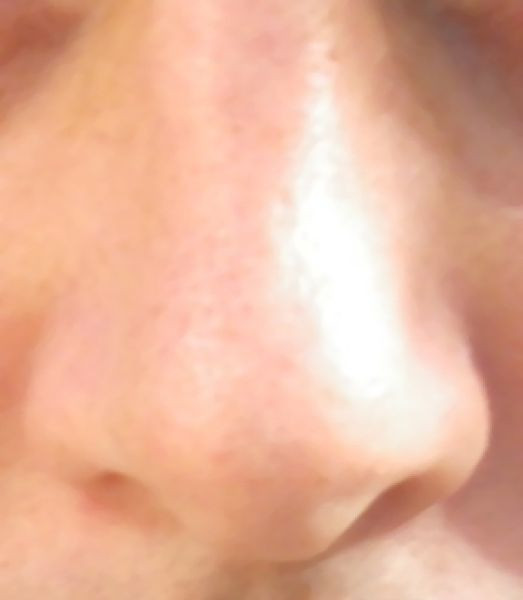How to spot a psychopath through yawns, sense of smell and speech patterns
Some physical traits correlate with high psychopathic scores

Psychopathy – the absence of empathy or caring about other people – is characterised by a number of traits, such as being selfish, manipulative and having an antisocial lifestyle. There are a number of ways to spot a psychopath, such as lack of empathy, superficial charm and self-centered impulsivity. However, there are also some more straightforward methods to do with physical behaviours, scientists have found over recent years.
Immunity to contagious yawning
A study published earlier this month found psychopaths are immune to contagious yawning. The researchers from Baylor University in Texas said people with psychopathic characteristics are less likely to yawn after seeing someone else yawn than people who are empathetic. The findings, published in the journal Personality and Individual Differences, noted how yawning after spotting another person yawn is associated with empathy and bonding, and is observed in many social animals.

The team looked at 135 college student who took part in the Psychopathic Personality Inventory – a 156-question psychological test. They were then placed in front of computers in a dim room, with noise-cancelling headphones and electrodes placed beneath around their eyes, on their foreheads and on their index and middle fingers. They were then shown video clips of different facial movements, such as yawning, laughing or neutral. Tests showed lower yawn frequency was associated with having less empathy.
Lead researcher Brian Rundle said: "You may yawn, even if you don't have to. We all know it and always wonder why. I thought, 'If it's true that yawning is related to empathy, I'll bet that psychopaths yawn a lot less.' So I put it to the test. The take-home lesson is not that if you yawn and someone else doesn't, the other person is a psychopath. A lot of people didn't yawn, and we know that we're not very likely to yawn in response to a stranger we don't have empathetic connections with. But what we found tells us there is a neurological connection — some overlap — between psychopathy and contagious yawning. This is a good starting point to ask more questions."
Poor sense of smell

Researchers from Macquarie University in Australia found that people with psychopathic tendencies have a poor sense of smell. They published their findings in the Springer journal Chemosensory Perception in 2012. Previous studies have shown how people with psychopathic traits have impaired functioning in the front part of the brain, an area that is largely responsible for things like planning, impulse control and social behaviours. Dysfunction in these areas is also linked with an impaired sense of smell.
Mehmet Mahmut and Richard Stevenson looked at whether or not people who had a poor sense of smell also had higher levels of psychopathic tendencies. They looked at 79 non-criminal adults and first assessed their sense of smell in terms of ability and sensitivity. They also measured each participants' level of psychopathy through five categories – manipulation, callousness, erratic lifestyles, criminal tendencies and empathy.
Findings showed people who scored highly on psychopathic traits were more likely to struggle to identify smells and tell the difference between smells – even though they knew they were smelling something: "Our findings provide support for the premise that deficits in the front part of the brain may be a characteristic of non-criminal psychopaths," they wrote. "Olfactory measures represent a potentially interesting marker for psychopathic traits, because performance expectancies are unclear in odour tests and may therefore be less susceptible to attempts to fake good or bad responses."
Speech patterns
Psychopaths have certain speech patterns that can be identified through computer analysis, researchers found in 2011. Led by Cornell University's Jeff Hancock, the team of scientists analysed the speech patterns of 14 psychopath murderers and those of 38 killers who were not diagnosed as being psychopathic. Each participant was asked to describe their crime in detail. The stories were taped, transcribed and analysed on a computer.
Publishing their findings in the journal Legal and Criminological Psychology, the team found psychopaths used more conjunctions – words like because, since or so that – implying that the murder they carried out "had to be done" to reach a specific goal. They used twice as many words related to physical needs like food, sex and money, while non-psychopathic murderers used more words about social needs, like family and religion.
Psychopaths vs sociopaths
A study from 2014 looked at portrayals of 'psychopaths' in the movies and found most would not be diagnosed as such in the traditional sense. Hannibal Lecter, Norman Bates and Michael Myers would not be classed as psychopaths – Bates for example is too delusional and disconnected from reality. The most accurate portrayal of psychopathy on the silver screen was Anton Chigurh in No Country for Old Men (portrayed by Javier Bardem). Chigurh, they said, is a 'well-designed' psychopath who is unable to learn from past experiences, ruthless, determined and lacks empathy.
"Our paper is the first to show that you can use automated tools to detect the distinct speech patterns of psychopaths," Hancock said. This can be valuable to clinical psychologists, he said, because the approach to treatment of psychopaths can be very different."
Another complementary study by researchers at the University of British Columbia found that psychopaths were more likely to use the past tense, suggesting a detachment from their crime, while they also tended to sue more ums and uhs, possibly suggesting they have to try harder to make a positive impression in the way the story is framed.
Hancock said it might be possible in the future to use their findings to screen social media text for psychopaths: "These findings on speech begin to open the window into the mind of the psychopath, allowing us to infer that the psychopath's world view is fundamentally different from the rest of the human species," the authors said.
© Copyright IBTimes 2025. All rights reserved.






















